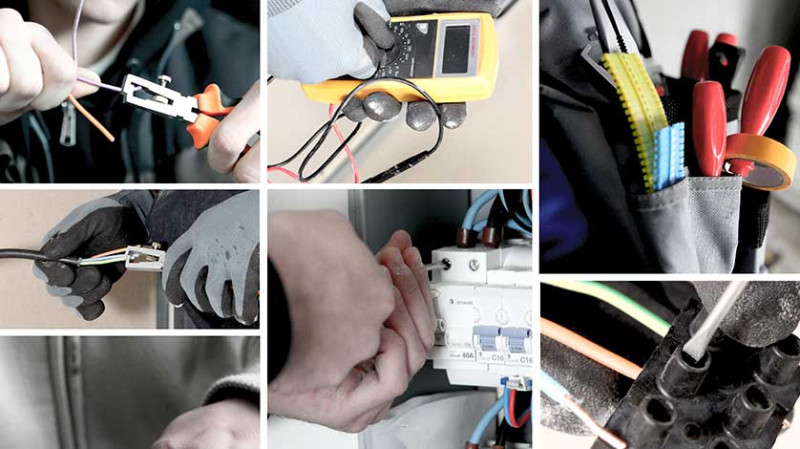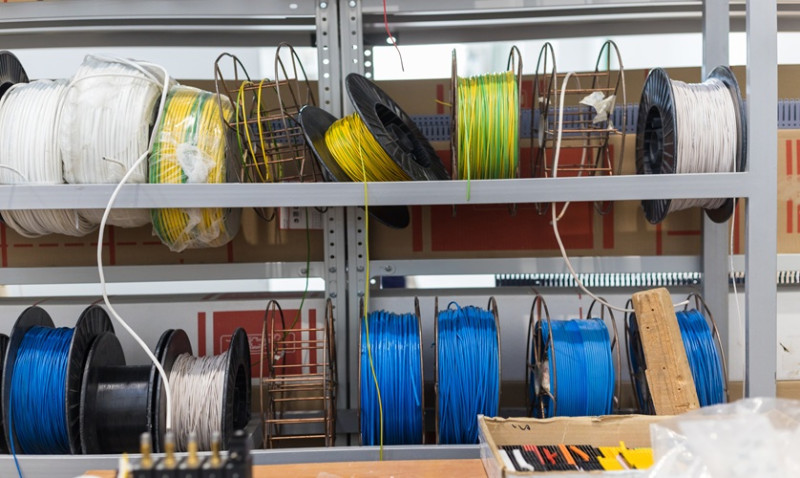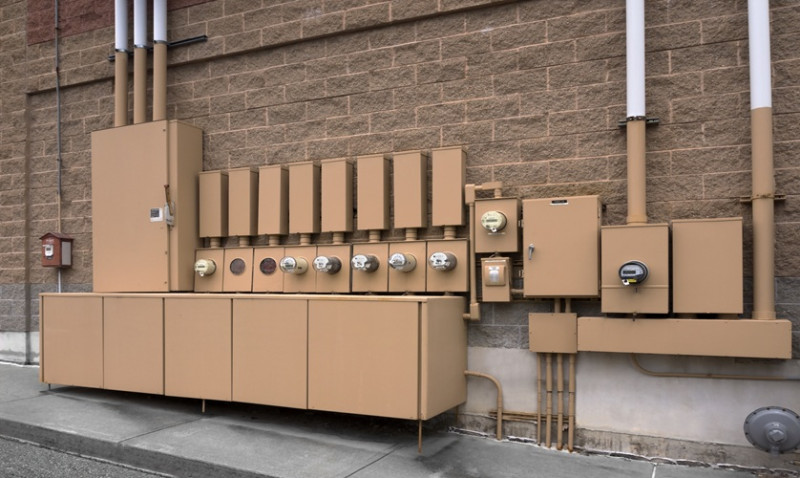
Deciding to become an electrician is a smart move. With the UK embracing green energy solutions, smart home installations, and ongoing construction projects, electricians are vital. But before you pick up a toolbox or enrol in a course, there are a few essential things you need to know. Whether you're a DIY enthusiast considering a professional shift, a designer working with electrics frequently, or a young professional wondering if this is the right path—this guide is for you.
1. Understand the Role: It's More Than Just Wiring
Many people assume electricians simply fix wiring or install sockets, but the role is much more complex. Electricians in the UK work across domestic, commercial, and industrial environments. From installing smart home systems and EV chargers to rewiring older properties with legacy systems, the job is varied and technically demanding.
You'll need to read technical drawings, understand compliance and safety codes (like the latest BS 7671 wiring regulations), and think on your feet when problem-solving on the job. As your experience grows, so will your credibility and the scope of work you can take on.
This level of skill requires ongoing learning—some call it “lifelong training” because of the constant upgrading of new technologies, like solar PV systems and battery storage installations.
DIYers and professionals in architecture/design also benefit hugely from having a base understanding of what a skilled electrician does—it helps with accurate quoting, compliance in design specs, and reducing mistakes during installations.
2. Training and Qualifications: No Shortcuts Here
To work legally and safely as an electrician in the UK, you’ll need proper training and qualifications. Unlike some trades, becoming an electrician isn’t something you can learn purely on-the-job. There’s a structured path, and skipping steps is not only dangerous—it's illegal.
Here’s a simplified guide to what most professionals need:
| Qualification | Purpose |
|---|---|
| Level 2 Diploma in Electrical Installation | Foundational knowledge - electrical theory, installation process |
| Level 3 Diploma in Electrical Installation | Advanced skills - inspection, testing, and fault diagnosis |
| NVQ Level 3 + AM2 Assessment | Competency check in real working environments - required for becoming a fully qualified electrician |
| 18th Edition Wiring Regulations (BS 7671) | Statutory requirement for most electricians in the UK |
| ECS Gold Card | Demonstrates you are fully qualified and adheres to industry standards |
These qualifications can be gained over several years through an apprenticeship or adult learning programmes if you're switching careers later in life. Accreditation from bodies like City & Guilds and EAL ensures your training is recognised across the UK.
3. Licensing and Legal Requirements
In the UK, it's not legal to carry out electrical work without being deemed competent. For domestic work, you'll often need to be registered with a Part P scheme to self-certify your installations. These schemes are run by bodies like NICEIC, NAPIT, and ELECSA.
If you're planning to set up as a self-employed electrician or start your own business, registration with such an organisation is vital. It builds trust with clients, ensures your work meets building regulations, and is often necessary to secure liability insurance.
Even if you're already in a building trade role or are used to doing your own installations, the legal landscape around electrics is stricter than most other trades for a reason—bad wiring can be fatal. Understanding the boundaries of where your DIY knowledge ends and professional obligations begin is crucial.
4. Tools and Investment: More Than Just a Van and VDE Screwdrivers
Becoming an electrician isn’t cheap. Beyond training and certification, there’s the cost of tools. A professional toolset includes insulated hand tools, multimeters, voltage testers, conduit benders, SDS drills, cable rod sets, and increasingly, smart diagnostic tools.
The lifetime value of high-quality tools will save you money and frustration in the long run. Cheaper tools will both slow you down and put you at unnecessary risk. Investing in recognised brands like Makita, Fluke, Wiha, and CK Tools is common amongst reputable UK electricians because the tools last and meet BS standard requirements.
Don’t forget about your work vehicle, uniform, PPE (Personal Protective Equipment) and ongoing software tools like job scheduling apps and certification platforms.
Budgeting accordingly is vital if you're entering into the trade from scratch. Many apprentices start collecting tools bit by bit, sometimes with the help of grants, bursaries or employer support. Designers, trade partners or architects should also know what tools are required—this helps when scoping out project timelines and understanding what's feasible.
5. Physical Demands and Safety Risks
This is a hands-on job that takes a physical toll. You could be working in crawl spaces, lifting floorboards, climbing scaffolding, or working outside in winter without guaranteed heating. You'll also need stamina to carry your tools, keep up with fast-paced work during fit-outs, and still stay sharp mentally when diagnosing complex faults.
The Health and Safety Executive (HSE) considers electrical work a high-risk profession. Working on live circuits, heights, or in confined spaces can result in serious injury if the right precautions aren’t taken. This includes lock-out procedures, carrying up-to-date test equipment, and always following risk assessment protocols.
Therefore, you need to be wired for discipline—safety is non-negotiable, and rushing through time-limited jobs or skipping checks has real consequences.
6. Career Pathways and Earning Potential
Electricians in the UK earn above-average wages, with plenty of opportunities for progression. According to industry averages in 2023, a qualified electrician can earn between £30,000 – £45,000 per year, while specialist contractors or business owners can earn much more.
There are also diverse pathways: installation, maintenance, inspection/testing, or niche fields like home automation or renewable technologies. Some electricians go on to become electrical engineers, designers or even energy consultants with further education.
For homeowners and DIY enthusiasts, understanding these distinctions helps when hiring for a project—you'll know whether your job really calls for a Part P domestic installer or a qualified commercial team.
7. Daily Life: What to Expect on the Job
Expect early starts, long days, and time spent in and around various site environments. Electricians often work under tough deadlines, collaborate with other trades, and have to tidy up after every stage of the job. No two days look the same—one day might involve fitting lighting in a rural barn conversion; the next, testing fire alarms in a city business park.
The role also demands strong communication skills. You’ll be explaining findings to clients, liaising with architects, and ensuring building inspectors are happy. For professionals like designers and architects, working well with electricians make your projects go smoother and reduces snag lists during handover.
If you enjoy problem-solving, learning continuously, and working with both your brain and hands—you’ll find this career deeply rewarding.
Final Thoughts: Is It Right for You?
Becoming an electrician is an investment of time, effort, study, and money. But for those who thrive in technical environments, value job security, and enjoy practical work, it can be one of the most fulfilling trades available in the UK.
Whether you’re starting fresh, switching careers, or simply trying to understand more about the profession from the perspective of a client, contractor, or creative—educating yourself about the reality of this trade only makes your decisions smarter and safer.
If you're thinking of taking the leap, start with free online resources, speak to local electricians, or sign up for a taster course at your local college. The sooner you start, the closer you’ll be to joining a resilient, respected and ever-evolving industry.







